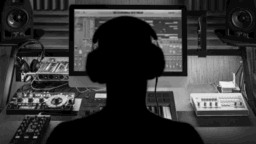A new study has found that Ireland’s music industry contributes over €470 million to the economy and supports more than 11,510 jobs in the country – but that its recorded music market has suffered damaging shrinkage.
While digital sales in Ireland have grown significantly, new figures show that in from 2008 to 2012, recorded music sales were cut in half – down from €72 million to €33 million per annum.
In the same period, digital sales and streaming grew 14% per annum, from €8m to €13m – but this wasn’t enough to halt a 25%-per-annum decline in recorded music income.
However, IMRO estimated that, overall, €291m was being raised by the ‘core music industry’ each year, with €88.6m generated by consumer spending and €93.8m created by the digital supply chain.
This chart from RIN and Deloitte highlights the decline in recorded music from 2008-2012, and digital’s fightback.

A survey of IMRO members and consultations with key music industry representatives – including artists and labels, publishers, songwriters, management companies, retail and broadcast personnel – highlighted a number of concerns relating to finance, market access, intellectual property, education and training and collaboration and recommended the following:
- The establishment of a Music Industry Taskforce, with representatives from Government, the business community and industry to help reinvigorate the sector and encourage collaboration;
- Appointing an IP ‘Tsar’ to consider the impact of IP and copyright legislation and enforcement in both the music and technology industries;
- The development of advanced training courses for music professionals to focus on ‘business of music’ education, particularly for early career musicians;
- Establishing a Music Office – Music Ireland – to act as a focal point for the music industry, similar to the Irish Film Board. This office would provide assistance to individuals in the music sector and those looking to enter new overseas markets; Greater collaboration between the music, tourism, gaming and technology sectors;
- Greater support for musicians, many of whom are self-employed, in accessing finance and ensuring that fiscal supports are effective and appropriately structured.
Commenting on the report, Minister for Arts, Culture and the Gaeltacht Heather Humphreys TD said, “This report highlights the huge contribution the music industry makes to our economy. Ireland’s rich musical heritage is a very important element of our image on the international stage and it acts as a major draw for tourists. I look forward to working further with the music industry as my Department develops our first even national cultural policy; Culture 2025. I am very keen to get the views and input of the music industry and stakeholders across the arts. I intend to publish a Culture 2025 Discussion Paper shortly, which will be an important step in opening up the debate around how we should shape the future of the arts in Ireland – including music.”
Keith Donald, Chair of IMRO said, “We are at an exciting juncture for Irish music and now is the time to ascertain how we can support, grow and reinvigorate the industry. The sector delivers significantly for Irish society and the economy, maintaining and creating thousands of jobs. Collaboration amongst Government, industry and music creators themselves will help the sector to adapt to new challenges, grasp new opportunities and help it to reach its full potential.”
Victor Finn, CEO of IMRO said, “If we are to maintain and increase participation in Irish music, it is important that Government, the business community and industry work together to recast perceptions of music as a career and to ensure that the right supports and structures are in place to assist musicians, help them to realise their potential and access markets in Ireland and overseas. In addition, we are calling for greater collaboration between the music industry and the tourism, film, technology and gaming sectors to create new opportunities for growth. The economic and social dividend for Ireland will be significant.”
Singer-songwriter Brian Kennedy said, “As a working musician and performer for the last 25 years it is incredibly important to stand by IMRO on these vitally important issues that affect the entire music industry. Being a music creator is an actual proper job and this should be recognised, rewarded and assisted through all possible channels. It is important to put in place resources that remunerate creation from its inception by supporting songwriters and composers’ basic investment, without which no works could ever come into existence. Music creators play an enormous role in society and never more so as we work our way through challenging economic times.”
Singer-songwriter Luan Parle added “I greatly welcome the announcement of this important report today as it paints a realistic picture of how our industry operates and hopefully it will lead to a better understanding of what investments, collaborations and regulatory environment is needed to help our industry grow in the months and years ahead.”
[Pictured: Milky Chance, whose Stolen Dance was a No.1 record in Ireland last year]Music Business Worldwide





